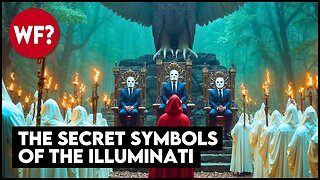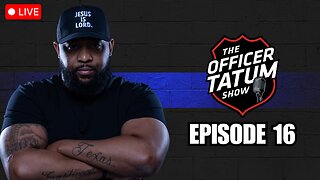Premium Only Content

Now Unto Him about Jude Doxology
One of my favourite songs I discovered when attending fellowship for the first time in my late teens was “Now unto Him” also known as a Doxology of Jude 24 - 25
A “Glory be”
Jude is possibly an older brother of Jesus. When Mary married Joseph, Joseph may have had children as a widower. Possibly Jude was older than Mary? During Jesus’ ministry we find out his family were against him.
Jude was an early Christian following the resurrection. Over the following decades he was a leader. As an educated man, he wrote down things he had been saying. How had he felt knowing he had rejected Christ in life, but come to know Him after crucifixion? We get a sense of it in his words
===
The passage Jude 24-25 comes from the New Testament of the Bible, specifically from the Epistle of Jude. Here is the passage from the English Standard Version (ESV):
"24 Now to him who is able to keep you from stumbling and to present you blameless before the presence of his glory with great joy, 25 to the only God, our Savior, through Jesus Christ our Lord, be glory, majesty, dominion, and authority, before all time and now and forever. Amen."
Here's a breakdown of the verses:
Verse 24:
"Now to him who is able to keep you from stumbling": This phrase expresses the power and capability of God to protect believers from falling into sin or error.
"And to present you blameless before the presence of his glory with great joy": The verse emphasizes the ultimate purpose of God to present believers as blameless and full of joy in His presence.
Verse 25:
"To the only God, our Savior, through Jesus Christ our Lord": This statement affirms the unique role of God as the Savior, with Jesus Christ serving as the means through which salvation is achieved.
"Be glory, majesty, dominion, and authority, before all time and now and forever": The verse ascribes attributes such as glory, majesty, dominion, and authority to God, emphasizing His eternal and unchanging nature.
"Amen": The word "Amen" is a declaration of affirmation or agreement, often used to conclude prayers or statements of faith.
The overall theme of these verses is a doxology—a short hymn or expression of praise—that magnifies the attributes of God and acknowledges His power to preserve believers and present them blameless. The passage exalts God's eternal nature, giving Him glory and authority throughout all time. It is a fitting conclusion to the Epistle of Jude, expressing confidence in God's ability to secure the salvation of believers and praising Him for His eternal attributes.
-
 4:20
4:20
Faith and Philosphy
2 years ago $0.01 earnedFrankenstein, Blade Runner and the search for God
3651 -
 1:56:08
1:56:08
Darkhorse Podcast
4 hours agoThe 253rd Evolutionary Lens with Bret Weinstein and Heather Heying
5.11K20 -

Barry Cunningham
1 hour agoTRUMP DAILY BRIEFING: Dems Threatening Trump Cabinet And Freaking Out Over Tariffs (and more!)
1.35K14 -
 LIVE
LIVE
Viss
2 hours ago🔴LIVE - Viss Arena Breakout Dominance!
1,961 watching -
 39:01
39:01
The Why Files
9 days agoSymbols of Power: Deciphering the Language of the Secret Elite
119K116 -
 1:21:39
1:21:39
The Officer Tatum
2 hours agoLIVE: Kamala's "DRUNKEN" Rant, The Redskins are COMING Back, and More! | OT Show EP 16
6.13K14 -
 LIVE
LIVE
Melonie Mac
2 hours agoGo Boom Live Ep 30!
470 watching -
 LIVE
LIVE
Film Threat
6 hours agoMOANA 2 + TURKEY DAY HOLIDAY MOVIE JAMBOREE! | Hollywood on the Rocks
527 watching -
 20:35
20:35
Silver Dragons
2 hours agoBullion Dealer Reveals PERFECT STORM for Silver
3042 -
 52:20
52:20
The Quartering
4 hours agoKamala Harris Has Drunken Unhinged Rant & Joe Biden Just Robbed America
94.2K45